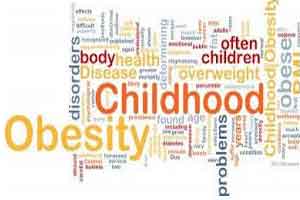- Home
- Editorial
- News
- Practice Guidelines
- Anesthesiology Guidelines
- Cancer Guidelines
- Cardiac Sciences Guidelines
- Critical Care Guidelines
- Dentistry Guidelines
- Dermatology Guidelines
- Diabetes and Endo Guidelines
- Diagnostics Guidelines
- ENT Guidelines
- Featured Practice Guidelines
- Gastroenterology Guidelines
- Geriatrics Guidelines
- Medicine Guidelines
- Nephrology Guidelines
- Neurosciences Guidelines
- Obs and Gynae Guidelines
- Ophthalmology Guidelines
- Orthopaedics Guidelines
- Paediatrics Guidelines
- Psychiatry Guidelines
- Pulmonology Guidelines
- Radiology Guidelines
- Surgery Guidelines
- Urology Guidelines
Maternal folate level may decrease child obesity risk, says JAMA study

NEW YORK: Adequate intake of folic acid during pregnancy is likely to protect children from a future risk of obesity, especially those born to mothers who were obese, finds a new study.
Folic acid or folate -- an essential B vitamin -- reduces the foetus' risk for neural tube defects, which are malformations affecting the brain, spine and spinal cord.
"Maternal nutrition during pregnancy can have long-lasting effects on child health, as well as the health of a mother after pregnancy," said lead researcher Xiaobin Wang, from Johns Hopkins University in the US.
The study, published online in JAMA Pediatrics, suggested that adequate maternal folate may mitigate the effect of a mother's obesity on her child's health.
"Folate is well known for preventing brain and spinal cord defects in a developing foetus, but its effects on metabolic disorders, such as diabetes and obesity, is less understood," added Cuilin Zhang from the National Institute of Child Health and Human Development (NICHD) in the US.
During pregnancy, maternal obesity increases the risk for a range of pregnancy complications, such as stillbirth, birth defects and preterm birth, the researchers said.
The findings showed that babies born to obese mothers have long-term health risks, including a higher risk of obesity in childhood.
Obese mothers in the study tended to have lower folate levels than normal weight mothers.
Children of mothers who had the lowest levels of folate in the gestation period showed the highest risk of obesity.
"This study uncovers what may be an additional benefit of folate and identifies a possible strategy for reducing childhood obesity," Zhang noted.
However, the children of obese mothers with adequate folate levels (at least 20 nm/L) showed a 43 per cent lower risk of obesity compared to children of obese mothers with lower folate (less than 20 nm/L).
Conversely, when folate levels reached approximately 20 nanomoles per litre (nm/L), which is within the normal range for adults, further increases in folic acid did not confer additional benefits, indicating a threshold or ceiling effect.
Establishing an "optimal" rather than "minimal" folate concentration may be beneficial for women planning a pregnancy, especially obese women, the researchers suggested.
For the study, the team analysed health records of more than 1,500 mother-child pairs, ranging from two to nine-years-old.
child obesityfolic acid during pregnancyMaternal folateNational Institute of Child Health and Human Development
Source : IANSNext Story
NO DATA FOUND

Disclaimer: This site is primarily intended for healthcare professionals. Any content/information on this website does not replace the advice of medical and/or health professionals and should not be construed as medical/diagnostic advice/endorsement or prescription. Use of this site is subject to our terms of use, privacy policy, advertisement policy. © 2020 Minerva Medical Treatment Pvt Ltd